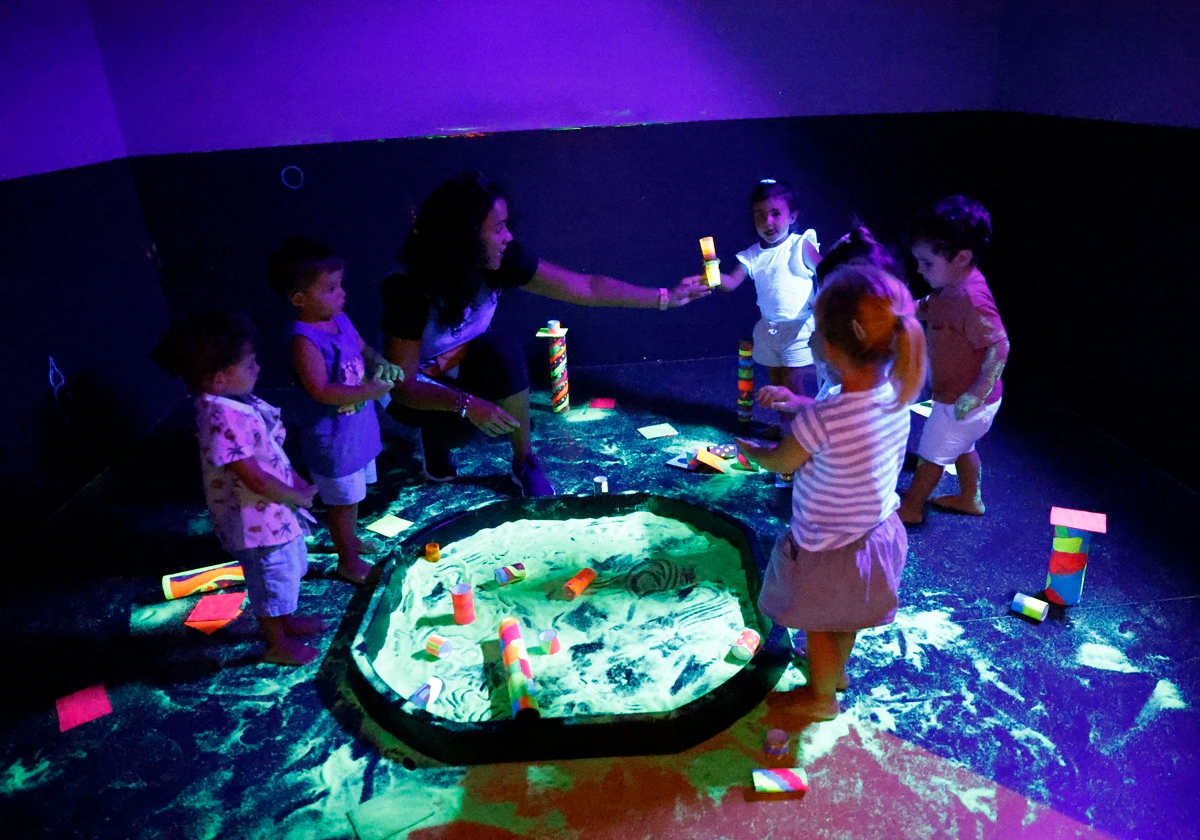Malaga province's nursery schools have 6,382 free places for children aged 0 to 3
Andalucía's Junta and central government clash over the return of 112 million euros of EU funds that were intended to be used to create new free public places in early childhood education
Nursery schools in Malaga province have 6,382 free places as of the beginning of this school year. Andalucía's regional government (Junta) and Spain's national government have clashed over European subsidies intended to create new free public places.
The Junta decided to return the 112 million euros allocated to Andalucía believing that it is unnecessary to create new nursery places, as year after year there are thousands of free places not taken up, more than 34,000 in Andalucía as of 1 September, of which 6,382 belong to the 374 nursery schools in Malaga. Almost half of the children in Malaga who use nursery schools (48.6%) do not pay anything for this socio-educational service, according to data provided by the Junta's ministry of education.
To give some background: in the Spanish education system schooling is only compulsory from the age of 6 (primary education). Prior to this age the pre-school stage is divided into two cycles, the first for newborns to three year-olds and the second (free for all children at public centres) from three to six years. Children in the younger category attend nursery schools and older children attend infant school centres.
For this academic year the regional ministry of educational development made 23,538 places available to families in Malaga province for children aged up to three. As of 1 September, 17,156 places had been registered, leaving 6,382 (27%) vacant. Last year 23,639 places were available and 17,616 were enrolled, leaving 6,023 untaken. The regional ministry is holding open an extraordinary admission and application period for subsidies so that more families can apply for these services if need be.
Aid from PSOE to PP Junta
When the socialist party, PSOE, governed Andalucía with María Jesús Montero as finance minister back in 2017, an aid plan was approved for families to promote schooling for children under three years of age. This regional plan has continued under the subsequent governments of Partido Popular (PP).
This programme of aid to families has allowed Andalucía to lead the number of children in school at national level: 103,800, making an enrolment rate that is 14 points higher than in 2018. Moreover, this academic year it will be close to 60% of the school population of that age group, well above the national average (41.8%) and the EU-recommended 33% of children for that age group.
Town councils in Catalonia are rejecting the aid package and the Basque Country will be allowed to use it for other educational needs
When in the context of the pandemic and with the funds obtained from Europe for Spain's post-pandemic economic recovery, Spain's president Pedro Sánchez announced a plan to create public places for children under three years old. The then regional minister for education, Javier Imbroda (who died in April 2022), was already opposed to changing a model of public-private collaboration that was giving such good results in the case of Andalucía. His then deputy minister, Mari Carmen Castillo, has been appointed by Junta president, Juanma Moreno, as minister of education in the latest reshuffle at regional level.
The network of nursery schools is mostly private and what this support plan does is to subsidise the cost of services depending on family income. The province of Malaga has 374 nursery schools, of which 100 are public, either belonging to the Junta or other public bodies (mostly the councils in small towns or villages). The other 274 are private and are members of the Junta's aid programme. In addition, there are 38 private centres which are not members of the aid programme and five from other bodies, but which are also not members of the aid programme.
Almost half of Malaga's children under three have fully subsidised socio-educational and canteen services
Following the latest price updates, socio-educational services cost families 240.53 euros and the canteen 92 euros. Those who use the afternoon timetable with recreational activities pay an additional 63.64 euros (2.90 if used for single days).
The average number of pupils of this age group who receive a total subsidy is 48.6% in the case of Malaga, although the average subsidy for families is 71% of the cost of the service. In March, the Junta and the business sector agreed on a roadmap for further progress towards free places from the 2025/26 school year onwards. The total budget for this stage in this academic year is almost 393 million euros.
Over the last three years, Andalucía has tried to negotiate, without success, to be able to allocate the 112 million euros of European funds to make the under-3 cycle of nursery education free to everyone. Before returning the funds the Junta opened a line of subsidies of 52 million euros to all local councils in Andalucía in areas where there was no or an insufficient supply of free places, which only covered 1.8 million.
It is not only Andalucía that has returned these funds. Catalan media report that local councils in the region are refusing to create new places. In the Basque Country, a grant of 11 million euros was not accepted in principle because there were too many places left over. However, contrary to what has happened in Andalucía, the ministry of education for central government has informed them that it will allow them to use the funds to cover other educational needs.
The move towards free childcare in the Andalusian model is supported by the business sector. Maintaining employment is another of the reasons put forward by the regional government for not changing the model: around 15,000 people, most of them women, work in Andalucía's nurseries.

